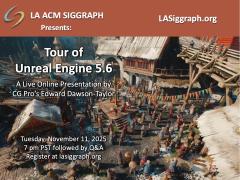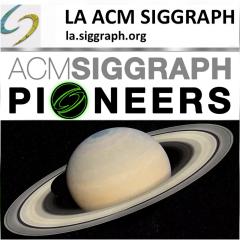The CSULB Shark Lab is one of the largest telemetry labs in the US and was a pioneer in the development and use of acoustic telemetry in the marine environment.
Historically, The CSULB Shark Lab study of sharks was significantly limited by lack of appropriate technology and now the Shark Lab employs a wide array of technologies (acoustic and satellite telemetry tracking, autonomous shark tracking robots, drones, underwater video systems and eDNA). The Shark Lab is now using these technologies to study white sharks and their behaviors while they share beach habitats with people, which has resulted in large data sets. One of the CSULB Shark Lab goals is developing new tools to visualize and animate these data in ways the public can appreciate and understand the behavior of these animals.
This event is brought to you by both the LA chapter and the San Francisco chapter of ACM SIGGRAPH.
You must register with Zoom Registration to attend this event.
Dr. Lowe has been studying sharks, rays and bony fishes for over 30 years, focusing on their behavior, physiology and ecology. For the last 15 years, Dr. Lowe and his students have been studying juvenile white sharks off the coast of southern California. Using a wide array of technology, they have found that white sharks use southern California beaches seasonally as nursery habitat for their young. This brings juvenile white sharks in close proximity to beach goers. Dr. Lowe and his students use a wide array of technologies and educators to help lifeguards and the public understand the mysterious lives of sharks and just how much of a threat they may actually pose.
The VISUAL data that the Shark Lab captures from acoustic and satellite telemetry techniques are used to track the movement, behavior and physiology of sharks and rays. A digital VISUAL component to the Shark Lab’s acoustic telemetry labs for the west coast.
These methods are also used to study the baby and juvenile white sharks of Southern California. The fluctuations in water temperatures and weather do affect the Shark’s life.
Learn about autonomously tracking sharks. The Shark Lab AUVs help create digital 3D mapping of temperature, depth, chlorophyll, turbidity. The Shark Lab AUVs have digital omni-directional hydrophone and on-board acoustic receiver that detects tagged sharks. The Shark Lab AUVs can have multiple video cameras which can be saved digitally.
The Shark Lab's UAVs – Drone fleet can have stereo video cameras that can save digitally with a user interface that maps the site, through time. The Shark Lab's UAVs – Drone fleet can view the shark surveys along the coast.
7:00p – Welcome & Intros
7:05p – Speaker
7:45p – Q&A
8:15p – Wrap
You must register with Zoom Registration to attend this event.
This is a free Zoom event. You must register with Zoom to get access to the event.
This event is open and free to everyone! You must register through Zoom to get access to this Webinar. We always appreciate a donation or Chapter Membership to help cover our expenses.
All members of the San Francisco Chapter are encouraged to register for FREE.
You may Join the chapter for $40/year or Donate for any amount. We accept online payments through PayPal.
Dr. Chris Lowe, Professor, Marine Biology - Director of the Shark Lab; Joan Collins, Leonard Daly and all members of the Executive Council of the Los Angeles chapter of ACM SIGGRAPH; and Henry LaBounta, Tereza Flaxman and all members of the San Francisco chapter of ACM SIGGRAPH.
- Log in to post comments






